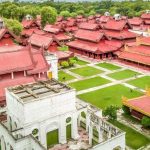The Philippines, a Southeast Asian archipelago basking in tropical sunshine and brimming with welcoming inhabitants, has captured the hearts of many British retirees seeking a new chapter in their lives. This enchanting country, with its balmy weather, inviting beaches, and rich tapestry of cultural experiences, presents an alluring backdrop for those looking to settle down and enjoy their golden years. Yet, as with any relocation, the challenge of building a new social life from the ground up can loom large. This article aims to illuminate the path to creating a vibrant community for British expatriates in the Philippines, ensuring that their retirement is not only comfortable but also rich in companionship and cultural engagement.
The first step in constructing a social network in an unfamiliar environment is to seek out like-minded individuals. The digital age has made this task significantly easier, with a plethora of online forums and social media groups dedicated to connecting British expats living in the Philippines. These digital communities serve as a gateway to real-life connections, offering advice, support, and often, a much-needed sense of belonging. From sharing experiences to exchanging recommendations on local services, these online platforms are a treasure trove of resources for those feeling the pangs of loneliness in a new country.
For the more socially inclined, expat clubs are a bustling hub of activity, often found in the major cities of the Philippines such as Manila, Cebu, and Davao. These organizations are tailored to the needs of foreign residents, hosting a smorgasbord of social events and outings that cater to diverse interests. Whether it’s a round of golf, a book club discussion, or a festive get-together, these clubs provide the perfect setting to mingle with others who have embarked on a similar journey. Moreover, they offer a sense of continuity, allowing newcomers to maintain ties with British traditions and customs while embracing the local culture.
Language can sometimes be a barrier in forming deep connections, but it also presents an opportunity for growth. By participating in language exchange groups, British expats can learn the local dialect, Tagalog, and in turn, help locals hone their English skills. These groups foster an exchange of knowledge and culture, breaking down walls and paving the way for meaningful friendships. Engaging with locals in this manner not only accelerates the learning process but also opens the door to authentic experiences that can only be had through shared communication.
Immersing oneself in the local scene is another surefire method of building a social network. The Philippines boasts a plethora of local activities ripe for involvement. For the altruistic at heart, volunteering at local charities or NGOs can be incredibly rewarding. This is a chance to give back to the community, while simultaneously forming bonds with the people who are the fabric of the area. Sports enthusiasts can find kinship in joining local sports clubs, whether it’s a round of golf, a friendly tennis match, or a more adventurous pursuit like scuba diving or hiking. For those with a penchant for the arts, hobby groups and classes are aplenty, from painting to pottery, offering a chance to indulge in creative passions and connect with individuals sharing the same interests.
The country’s vibrant social calendar is another avenue to explore when forging new connections. Local festivals, or “fiestas,” are colorful expressions of Filipino culture that take place year-round. These events, which celebrate everything from religious holidays to bountiful harvests, are an excellent opportunity to witness the local traditions firsthand and to interact with the community. The atmosphere is festive, the food is delicious, and the music is infectious – a perfect recipe for making memories and friends.
Hotels and restaurants in the more tourist-oriented areas often cater to the expat community by hosting events that bring together individuals from various walks of life. These gatherings can range from casual happy hours to more structured networking events, providing a comfortable space to mingle and make connections.
But it’s not all about organized activities. Sometimes, the simplest actions can yield the most profound results. Regularly visiting local farmers’ markets can lead to chance encounters and conversations with vendors and other shoppers, revealing the hidden gems of the area and allowing one to become a familiar face in the neighborhood. The same goes for cafés and restaurants. By frequenting the same spots, one can build relationships with the local staff and other regulars, leading to a sense of belonging and a source of social interaction.
The art of making friends in the Philippines is akin to a dance – it requires openness, respect, and a willingness to learn the steps. Smiling and offering a warm “Hello” or “Kumusta Ka?” can often lead to unexpected conversations and blossoming friendships. It’s essential to be patient, as relationships in the Philippines tend to develop at a more leisurely pace compared to the UK. However, the rewards of this investment are immeasurable, offering a depth of connection that can enrich one’s life beyond expectation.
The key to finding friends in the Philippines is to approach each interaction with an open heart and an open mind. Show genuine interest in the local culture, ask questions about the customs, and be eager to learn. By doing so, one not only becomes an active participant in the community but also gains a deeper understanding of the country they now call home.
In conclusion, building a social circle in the Philippines is an adventure that requires proactivity and a willingness to step outside of one’s comfort zone. By joining expat groups, engaging in local activities, and embracing the culture, British expats can create a network of support and friendship that will enhance their retirement experience. With these strategies in hand, the transition from a life in the UK to a new life in the Philippines can be smoother, more enjoyable, and ultimately, more fulfilling.
Related posts:

Ray Brocklesby, the site owner, is a Brit who now lives in the Philippines. He is retired and lives with his wife Weng, Daughter Kristelle, nephews, Harvey and Boknoy, and mother-in-law. Ray also has a son and daughter living in the UK, and a son in New Zealand.













